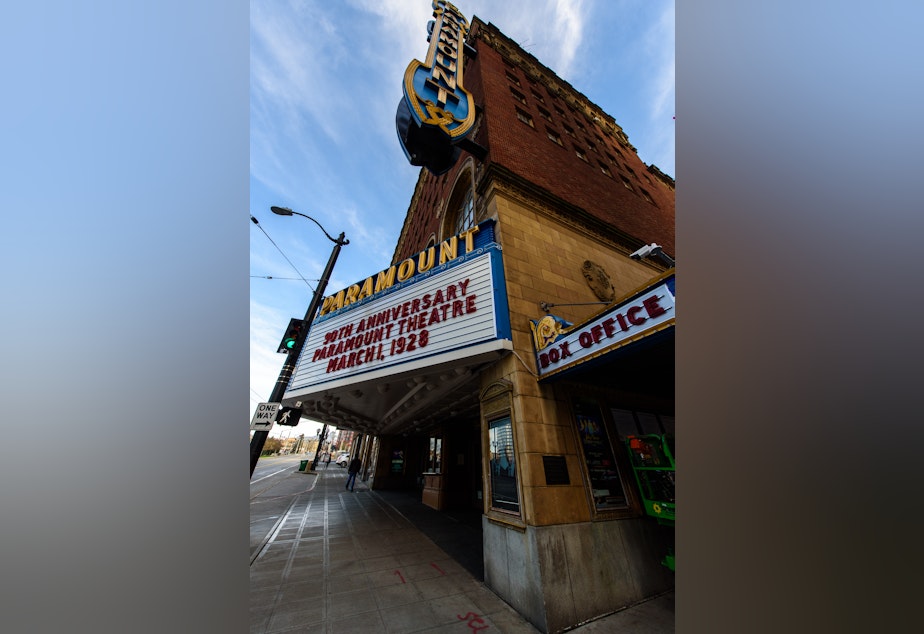Can Seattle theaters beat the scalper bots?

As soon fans found out that Broadway mega-hit ‘Hamilton’ was on its way to Seattle, they started a countdown until tickets went on sale.
So did ticket resellers, the folks who scoop up seats to everything from theater performances to football games and sell them at a profit.
The official term for this is the “secondary ticket market,” but you may know it better as “scalping.”
Scalpers often use automated online systems, or bots, to purchase tickets. In 2015, the state of Washington outlawed the use of ticket bots, but they haven't gone away.
But, to be clear: The secondary ticket market is legal. That’s where consumers need to be particularly savvy.
Kristina Murti, Marketing and Communications Director at Seattle Opera, says big shows like ‘Porgy and Bess’ attract resellers. Often, they offer tickets through websites that are hard to distinguish from the Opera’s own site.
“They typically make themselves look like us in Google ads,” says Murti. “They cleverly use a lot of marketing copy straight off of our websites to make their ads look more legitimate.”
One site offered ‘Porgy and Bess’ tickets for $9,000 each, 30 times the official price through the Seattle Opera. Murti says staff were flabbergasted. Although this was an extreme example, staff at the opera and other local arts organizations worry that inflated prices and websites that mimic those of the arts groups discourage would-be arts patrons, or worse—push those patrons to buy fraudulent tickets.
The situation is most critical at big organizations that present popular fare like musical theater. At Seattle’s 5th Avenue Theatre, box office staff have identified more than 20,000 scalping incidents since 2006. There were 83 this year alone.
Seattle Theatre Group, which presented ‘Hamilton’ as part of its Broadway at the Paramount series, sees an average of 15 scalped tickets at every performance of a touring musical show. To prevent ‘Hamilton’ scalpers, STG used a multi-step online ticket-buying system. Potential buyers had to register their names, addresses and phone numbers. Then they were given purchase codes online to use on particular days to try to buy tickets.
“We were pretty proud we were able to keep a lot of bots at bay,” says Josh Labelle.
In the future, STG plans to eliminate print-at-home tickets; if you buy online, you’ll have a code to scan at the door. Or, says Labelle, come down to the box office and buy a ticket in person.
Beyond lost revenue, Labelle and other Seattle-area arts leaders worry that ticket resellers can hurt the relationship between presenters and audiences.
“I don’t want to slam all secondary market sources,” says Labelle. “But this is about being able to effectively communicate with patrons.”
He cites a show that was cancelled at the last minute. “We emailed everyone who bought directly from us. If we don’t have an email or phone number, we can’t notify you when that happens.”
Labelle would like the state of Washington to put ticket resale decisions back into the hands of the presenting organizations. Until then, he urges any online ticket buyers to scrutinize websites carefully. Sometimes it’s only an extra dash or backslash that differentiates an organization’s legitimate site from a reseller’s.
State Attorney General Bob Ferguson agrees.
“It’s possible if someone is selling and mimicking a legitimate website, that can be a violation of the Consumer Protection Act.”
Ferguson says if consumers or arts organizations encounter deceptive online marketing, they should file a complaint with his office.
“We get 20,000 complaints a year and we review all of them," he said.




